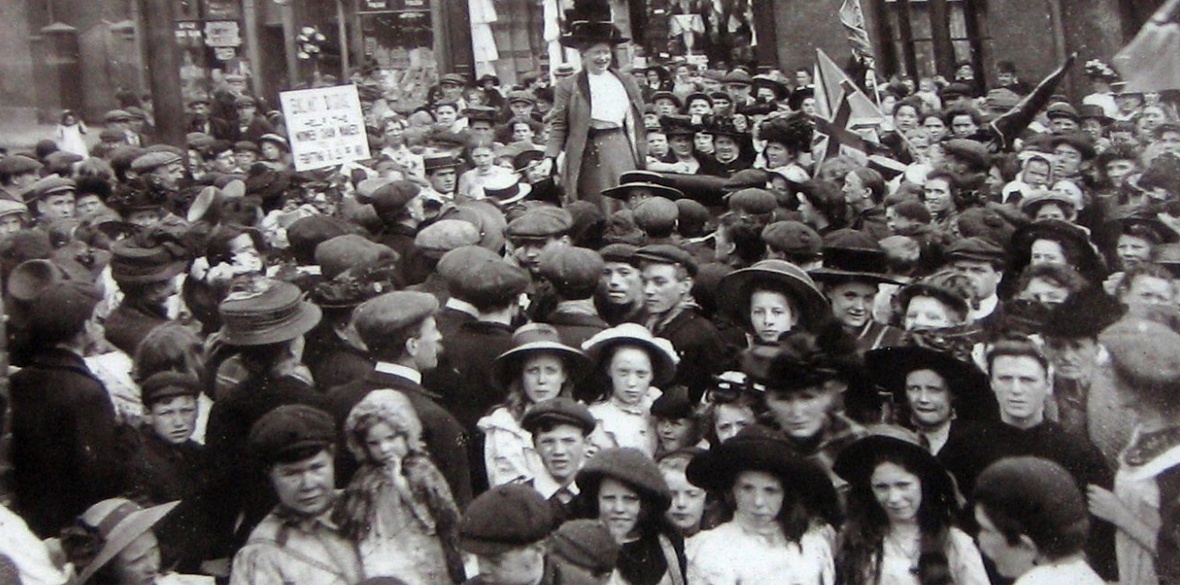This is the last article you can read this month
You can read more article this month
You can read more articles this month
Sorry your limit is up for this month
Reset on:
Please help support the Morning Star by subscribing here
THE TUC Women Chainmakers’ Festival will return on Saturday July 3, but, due to Covid-19, it will be back virtually again this year.
The pandemic has been a challenge for all of us. We’ve all had to adapt and adjust our way of life — our working life and our social life.
And we as unions have been right at the heart of these challenges, something that will be picked up at the festival.
Be that the failure to put in place adequate health and safety measures at the DVLA or the attempt to fire and rehire British Gas workers, those same key workers who were out keeping the country warm during the height of the pandemic.
So the festival will hear from those workers, from the front line who’ve been fighting for dignity, safety and security. And, of course, those workers are women workers.
The Women Chainmakers’ Festival was the first trade union festival dedicated to female trade unionists.
It is an event of which we are tremendously proud. And we use it to both reflect on the successes of women trade unionists in the past and to debate how we can build on it going forward. The trade union movement is majority female (57.3 per cent).
We must continue to promote, encourage and empower women trade unionists to drive change in workplace and society. The Chainmakers’ Festival will always be about that.
The chainmaking industry employed thousands of Black Country women in the early 20th century.
Working conditions were atrocious and pay was pitiful. In 1910, the Chainmaking Trade Board set a rate of 2½d per hour for adult women workers.
Mary Macarthur was one of the workers’ representatives on the trade board. The employers tried to renege on the deal but in response the women took a stand.
The strike attracted a great deal of public support and within a month a majority of employers had agreed to the rates.
Following a further six weeks of action, the remaining employers finally agreed to pay, securing a pay rise of nearly 100 per cent for the workers.
The world in 2020 is vastly different from the world of 1910, but, like in 1910, women are again the hardest hit.
We know that the pandemic has hit working-class communities hardest, with the worst effects borne by women.
For example, home schooling had a huge impact on working families, affecting over a third of working households. But the burden for juggling work and care fell predominantly on mums.
Moreover, nine out of 10 mums have stated their mental health has been negatively affected, experiencing levels of stress and anxiety.
Aside from the pandemic, it’s also clear that women are still facing battles that need to be won.
Every day, people across Britain are sexually harassed at work. Our current laws put the onus on individuals to report such incidents but four out of five don’t feel able to their employer.
It’s why we need a new, easily enforceable legal duty requiring employers to take all reasonable steps to protect workers from sexual harassment and victimisation.
That is why the TUC Women Chainmakers’ Festival is so important.
Let us provide the space for women trade unionists to outline the problem, propose solutions and mobilise and campaign for change.
The 2021 festival marks 100 years from the early passing of the heroic Macarthur.
And we should use this anniversary to learn the organising lessons that she demonstrated back in Cradley Heath in 1910.
At the time it was said that the chainmaking industry was too difficult to organise because it was so fragmented.
They said that the workforce was too apathetic. Sound familiar?
Many of these challenges present themselves today with the increasing casualisation of large parts of our economy.
But Macarthur was a “smart campaigner.” She built broad alliances and drove a wedge between employers.
She used the media imaginatively and organised mass meetings as a way of bringing women workers together.
As she said: “Women are unorganised because they are badly paid, and poorly paid because they are unorganised.”
Therefore, the Chainmakers’ Festival is rightly an important date in the movement’s calendar.
It demands the same level of importance as the Tolpuddle Festival and the Durham Miners’ Gala. So please do join us at 2pm on July 3.
Please register at mstar.link/Chainmakers2021.
Lee Barron is regional secretary for the Midlands TUC.












